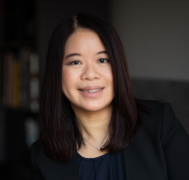When goals become aspirations, where does that leave us?
The Financial Times reported in January that PwC had dropped its commitment to allocate 40% of procurement spending to minority-owned suppliers in its latest diversity, equity, and inclusion (DEI) report as a result of the shifting legal landscape in the US following a Supreme Court ruling against affirmative action in college admissions last year.

Fundamentally, I believe that businesses can be an important force to drive societal change
Sadly, PwC is hardly alone in scaling back efforts to promote diversity, especially as US firms are increasingly facing lawsuits and scrutiny for their DEI programmes following the Supreme Court’s decision.
For example, the Strivers Grant Contest, one of the programmes conducted by the Fearless Fund that aims to provide $20,000 to Black women-owned businesses, was hit with a lawsuit filed last year alleging that it discriminates against people of other races. For context, Black founders received a meagre 0.48% of all venture funding in 2023, amounting to $661 million out of $136 billion, according to TechCrunch, citing Crunchbase data.
It’s a slippery slope.
Instead of backing down, however, I believe this is the time to double down. Fundamentally, I believe that businesses can be an important force to drive societal change. Our world is becoming more diverse — and the only way to survive, and thrive, is to change along with it.
Adapting to a changing ecosystem
Just as we can’t expect one company to be able to solve all the world’s challenges, it is utterly unrealistic to think that one gender or one ethnic group can be the singular voice to represent the future of an entire industry. Whether you are crafting new digital content or putting together an in-person discussion, diverse representation is paramount.
But when I naively thought we had finally nailed the manel challenge, it has come back in full force. “There are no women,” they continue to proclaim.
Is the true cause that there are no women in the industry? Or that the sought out subject matter experts from underrepresented communities are not responding to your cold calls? I’ve heard both excuses plenty of times. To be honest, if that’s still the same reasoning you are using for not having diverse perspectives in what you produce, it’s beyond time to try something different. And please do not pat yourself on the back for “trying” and shrug your shoulders because you have done “enough”. “You tried your best” is what teachers tell kindergarteners. That’s a tiresome excuse for grown-ups.
The truth is that brilliant, diverse talent is everywhere. The question is, have you tried hard enough and are you looking in the right places? Choir, a US-based start-up that aims to promote diverse voices to media and events companies, provides a database for speakers. Katie Gwyn-Williams, conference director of the Finovate series, has managed to achieve a 50/50 gender ratio at all the Finovate conferences over the past few years. And I have witnessed first-hand the amount of effort she puts in to get us there. It’s intention. It’s hard work. And it can be done.
Actions speak louder than words. For those who have a platform, look at who they invite to contribute and who they amplify. It is human nature that birds of a feather flock together. Changing the status quo requires us to dig much deeper. True impact requires courage to get out of our comfort zone.
My wonderful friend, Brian Lee, recently wrote in a beautiful post: “What could we gain by taking the time to ask and patiently listen? Do we listen, with intent to understand?” By that same token, I wonder what we have lost by not taking the time to ask and to listen? How much more vibrant and inclusive would our community be if we were to truly pay attention and include others’ perspectives — to understand and to act?
Who we include in our journey matters. Getting to true diversity and inclusion is a goal that we must hold ourselves accountable for. Enough with the small wins. Simply aspiring to be better is not enough.
I am reminded of a quote by the amazing trailblazer, Ruth Bader Ginsburg. “When I’m sometimes asked when will there be enough [women on the Supreme Court] and I say, ‘When there are nine,’ people are shocked. But there’d been nine men, and nobody’s ever raised a question about that.”
It’s time to demand more.
 About the author
About the author
Theodora Lau is the founder of Unconventional Ventures, a public speaker, and an advisor. She is the co-author of The Metaverse Economy (2023) and Beyond Good (2021), and host of One Vision, a podcast on fintech and innovation. She was named one of American Banker’s Most Influential Women in FinTech in 2023. She is also a regular contributor and commentator for top industry events and publications, including BBC News and Finovate.











































